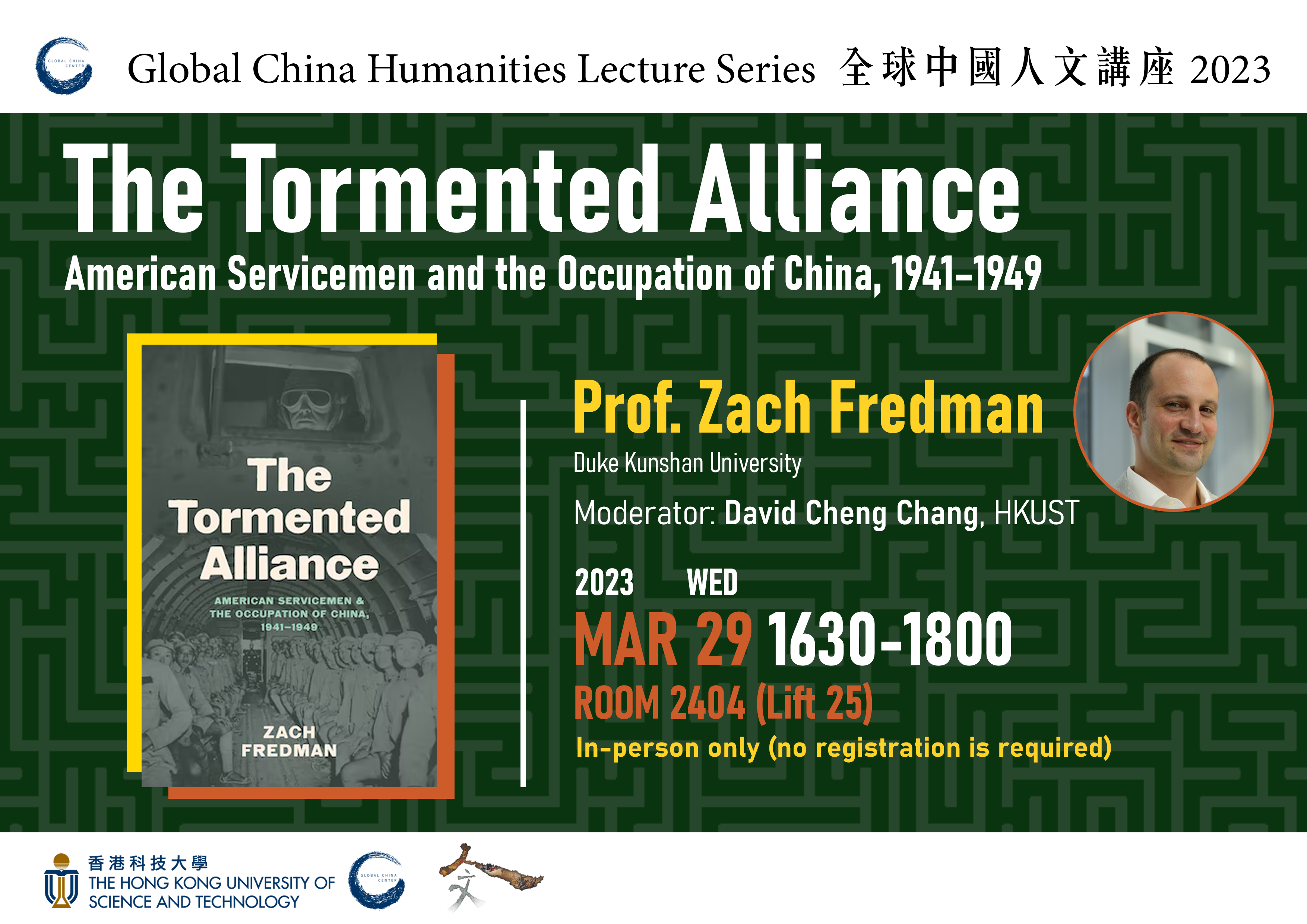Abstract
Zach Fredman’s The Tormented Alliance examines the formation, evolution, and undoing of the alliance between the United States and the Republic of China during World War II and the Chinese Civil War. Drawing on English and Chinese-language sources from all areas of China where US forces deployed during the 1940s, I show how each side brought to the alliance expectations that the other side was simply unable to meet, resulting in a tormented relationship across all levels of Sino-American engagement. Entangled in larger struggles over race, gender, and nation, the U.S. military in China transformed itself into a widely loathed occupation force: an aggressive, resentful, emasculating source of physical danger and compromised sovereignty. After Japan's surrender and the spring 1946 withdrawal of Soviet forces from Manchuria, the U.S. occupation became the chief obstacle to consigning foreign imperialism in China irrevocably to the past. Chinese leader Chiang Kai-shek lost his country in 1949, and the U.S. military presence contributed to his defeat. The occupation of China also cast a long shadow, establishing patterns that have followed the U.S. military elsewhere in Asia up to the present.
Biography
Zach Fredman is Assistant Professor of History and Associate Chair of the Division of Arts and Humanities at Duke Kunshan University. His research focuses on US-China and US-East Asian Relations. He has held postdoctoral fellowships at Dartmouth College and Nanyang Technological University.
